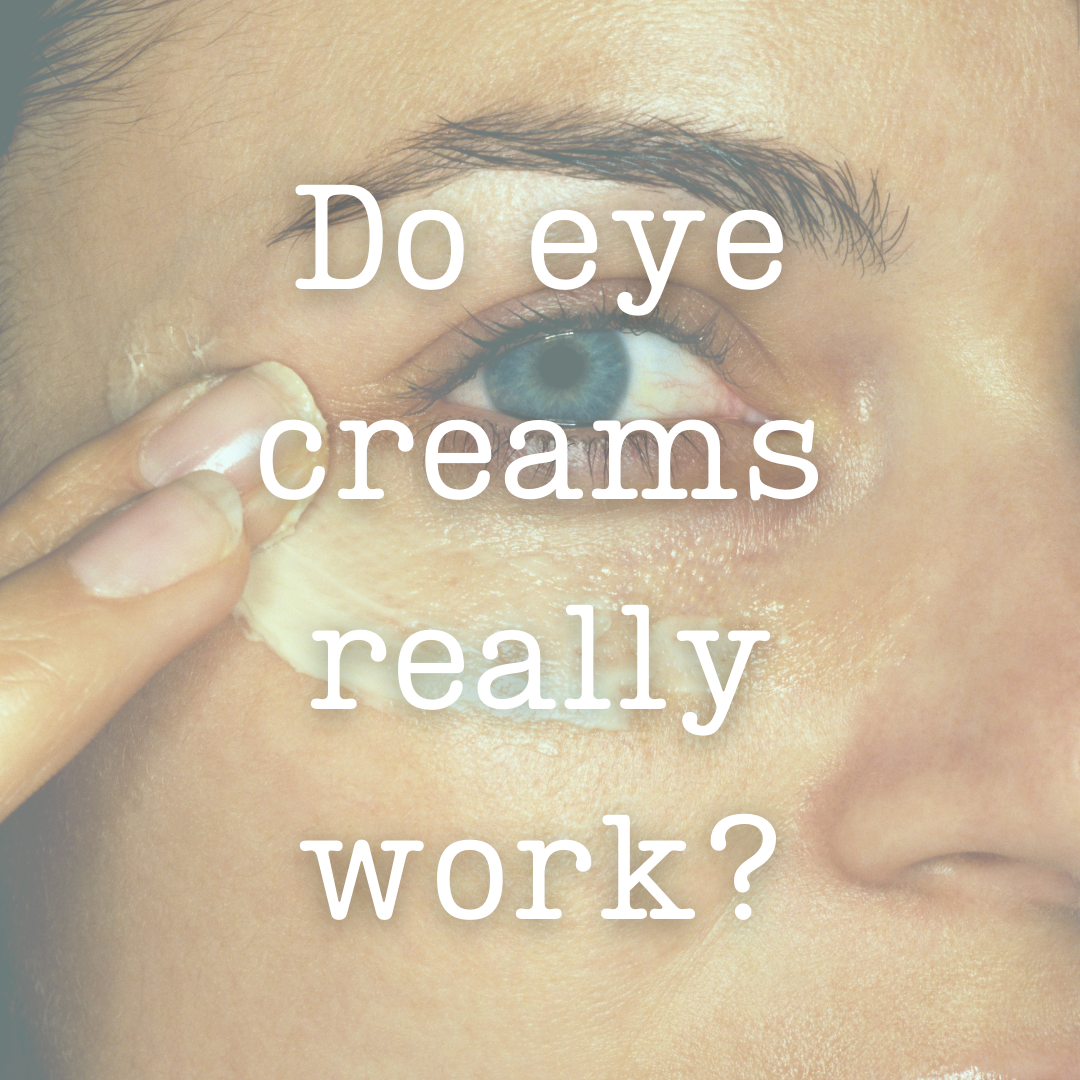
Do Eye Creams Actually Work?
Do Eye Creams Actually Work?
The skin around our eyes is often the first area to show signs of aging. Dark circles, puffiness, fine lines, and wrinkles can all make us look older and more tired than we feel. This has led to the popularity of eye creams, which are specifically designed to target these concerns. But do eye creams actually work?
The Thinness of the Skin Around the Eyes
The skin around the eyes is significantly thinner and more delicate than the skin on the rest of your face. This thinness makes it more prone to showing signs of aging, such as fine lines and wrinkles. The lack of subcutaneous fat in this area also means that it’s less resilient to external stressors like UV rays, environmental pollutants, and the natural process of aging.
Because the skin here is so thin, it’s also more susceptible to moisture loss, which can lead to dehydration and make wrinkles appear more pronounced. Proper hydration is crucial to maintaining the skin’s elasticity and smoothness.
Moisture Loss Around the Eyes
The skin around your eyes has fewer oil glands compared to other parts of your face, making it more prone to dryness. When the skin loses moisture, it can become dehydrated, leading to the appearance of fine lines and a crepey texture. Moisture loss is a key factor in the aging process, which is why hydrating this area is essential for maintaining a youthful appearance.
Eye creams are formulated to provide targeted hydration to the delicate eye area. They often contain ingredients like hyaluronic acid, which attracts and retains moisture, helping to plump up the skin and reduce the appearance of fine lines.
Sun Damage & Sunglasses
Sun exposure is one of the primary causes of premature aging, and the skin around the eyes is particularly vulnerable to UV damage. Over time, repeated sun exposure can lead to the breakdown of collagen and elastin, causing wrinkles, sagging, and hyperpigmentation.
Wearing sunglasses is a simple yet effective way to protect your eyes and the surrounding skin from harmful UV rays. Sunglasses help to prevent squinting, which can lead to the development of crow’s feet, and they shield the skin from direct sunlight, reducing the risk of sun damage.
In addition to wearing sunglasses, using an eye cream alongside your SPF during the day can provide an extra layer of protection.
When Should You Start Using Eye Cream?
The earlier you start taking care of the delicate skin around your eyes, the better. Most dermatologists recommend beginning to use an eye cream in your 20s. During this time, your skin is still youthful, but it’s also when the first signs of aging may start to appear, especially if you have lifestyle factors that can accelerate aging, such as sun exposure, stress, or lack of sleep.
Starting an eye cream in your 20s can help prevent premature aging and keep your skin looking fresh and youthful. It’s all about maintenance and prevention—by keeping the skin hydrated, protected, and nourished, you can delay the onset of fine lines, wrinkles, and other signs of aging.
Types of Eye Creams
There are various types of eye creams available, each formulated to target specific concerns. Here’s a breakdown of some of the most effective options:
-
Peptide & Stem Cell Eye Creams Peptides and stem cells are powerful anti-aging ingredients that help to promote collagen production, improve skin elasticity, and reduce the appearance of fine lines and wrinkles. Peptide eye creams are ideal for those looking to prevent or minimize the early signs of aging.
Example: IMAGE Skincare The MAX Eye Crème is a great choice. This eye cream contains potent peptides and plant stem cells that help to rejuvenate and protect the delicate skin around the eyes.
-
Retinol Eye Creams Retinol is a form of vitamin A that is renowned for its anti-aging benefits. It accelerates cell turnover, reduces the appearance of fine lines and wrinkles, and improves skin texture. Retinol eye creams are best suited for nighttime use, as retinol can make the skin more sensitive to sunlight.
Example: AlumierMD Retinol Eye Gel is an effective option for those looking to target fine lines and wrinkles around the eyes. This product uses a stabilized form of retinol that is gentle enough for the delicate eye area.
-
Vitamin C Eye Creams Vitamin C is a powerful antioxidant that brightens the skin, reduces the appearance of dark circles, and protects against free radical damage. Vitamin C eye creams are ideal for those who want to address pigmentation issues and improve the overall radiance of the skin around their eyes.
Example: Ultraceuticals Ultra C Firming Eye Cream is a great choice for brightening and firming the eye area. It combines vitamin C with other active ingredients to boost collagen production and protect the skin from environmental damage.
So, do eye creams actually work? The answer is yes—when used consistently and correctly, eye creams can provide targeted hydration, protect against environmental damage, and help to reduce the signs of aging around the delicate eye area. The key is to choose the right type of eye cream for your specific concerns and to start using it early, ideally in your 20s, to maintain a youthful and radiant appearance.
Remember, while eye creams can be highly effective, they’re just one part of a comprehensive skincare routine. Combine your eye cream with proper sun protection, a healthy diet, and overall good skincare habits to keep your skin looking its best for years to come.